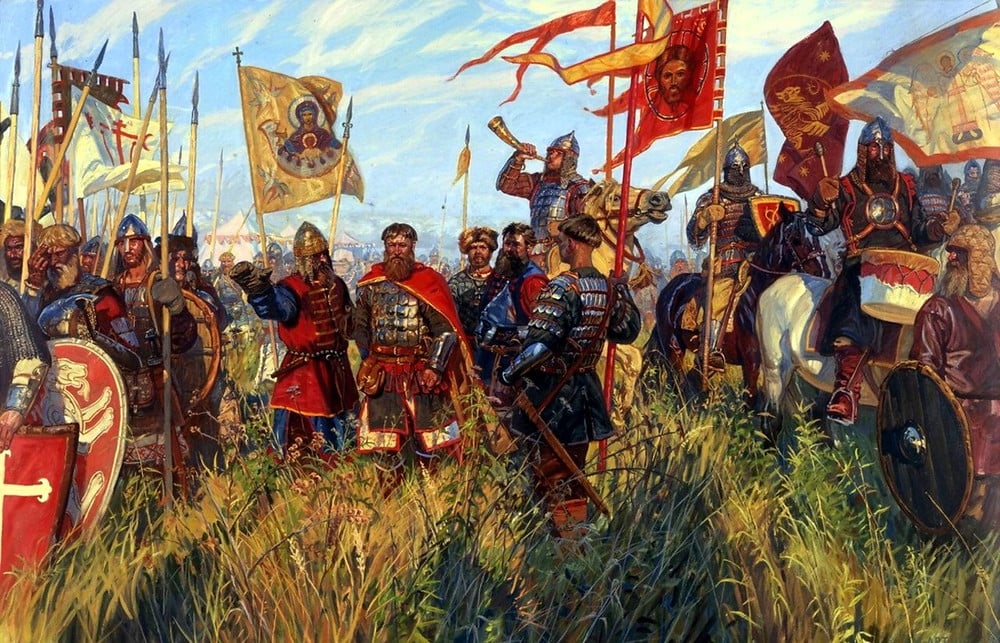Seafarers from Scandinavia were called Vikings. During the late 8th to 11th centuries, they raided, traded, and pirated throughout Europe and voyaged as far as the Mediterranean, North Africa, Bulgaria, the Middle East, and even North America. But did you know that they also became guards for Byzantine royalty?
Vikings served as the personal bodyguards of the Byzantine Emperors. They were known as Varangians or Men of Oath.
Are Vikings Real?
Vikings were men from Norway, Sweden, and Denmark who worked as farmers, traders, blacksmiths, and artisans. They began raiding towns, churches, and monasteries for various reasons. Many targets were on the coasts because they were the easiest to reach. With their swift and easily landed ships, the Vikings could swarm over the communities, killing and looting, then return to their ships and flee. They vanished before any defense or counter-attack could be mounted.
Surprisingly, most of the men who went Viking did so part-time. When Vikings weren’t busy farming, for example, planting crops, they left their farms and joined the raid. They frequently returned in time for the fall harvest. However, raiding was very profitable, and many farmers became full-time pirates and raiders. (Source: History on the Net)
Vangarians, Men of Oath
The Vikings arrived with their usual goal in mind: to plunder. This city enticed those seeking power and wealth: the Islamic caliphate attempted to take it in 710 but was soundly defeated. Constantinople was exceptionally well fortified, and it did not take long for the Vikings to realize that sieging it was futile. As a result, they began raiding the countryside.
Byzantine rulers quickly realized that these Northern brutes had no ideological or religious motivation to fight Byzantium. They only wanted gold and loot. As a result, in the 870s, the Byzantines purchased them by recruiting them as mercenaries at a high wage. In this way, they transformed a notorious foe into a powerful ally.
Grekerriket, the Norse name for the Byzantine Empire that translates as the Greek Empire, attracted many Norse warriors, merchants, and travelers. They were awestruck by the beauty of Constantinople, which they dubbed Miklagard or the Glorious City. Furthermore, the Byzantine world gave the Norse everything they desired: true adventure, wealth, renown, and, most importantly, endless opportunities to fight valiantly and leave a legacy of bravery. These motivations were ingrained in Norse culture. The warrior-mentality persisted even after they were baptized Christians.
By the early 10th century, the Vikings had become an increasingly important part of the Byzantine Navy, playing a vital role in the 945 reconquests of Crete. Vikings made a name for themselves, fighting Arabs in Syria in the 950s. The Byzantines began to regard them as elite warrior units capable of the most challenging combat.
The turning point occurred in 988 A.D. when Emperor Basil II required assistance to defeat the rebellious general Bardas Phokas. Grand Prince Vladimir of Kiev, Basil’s Russian ally, responded by sending 6000 Norse warriors. When these Vikings arrived on the battleground, they terrified their opponents. According to the records, Bardas Phokas died of a stroke when they appeared. As the insurgents were eventually routed, the Vikings pursued them and “joyfully hacked them to pieces.”
Basil II wasted no time in realizing the potential of what he had before him. He officially established the Varangian Guard, the Emperor’s Imperial bodyguard and elite fighting division based on these Vikings. Varangian translates as Man of Oath. As a result, these Vikings were sworn in by oath to protect the Emperor at all costs. (Source: Strategos History)
Image from strategoshistory.com
